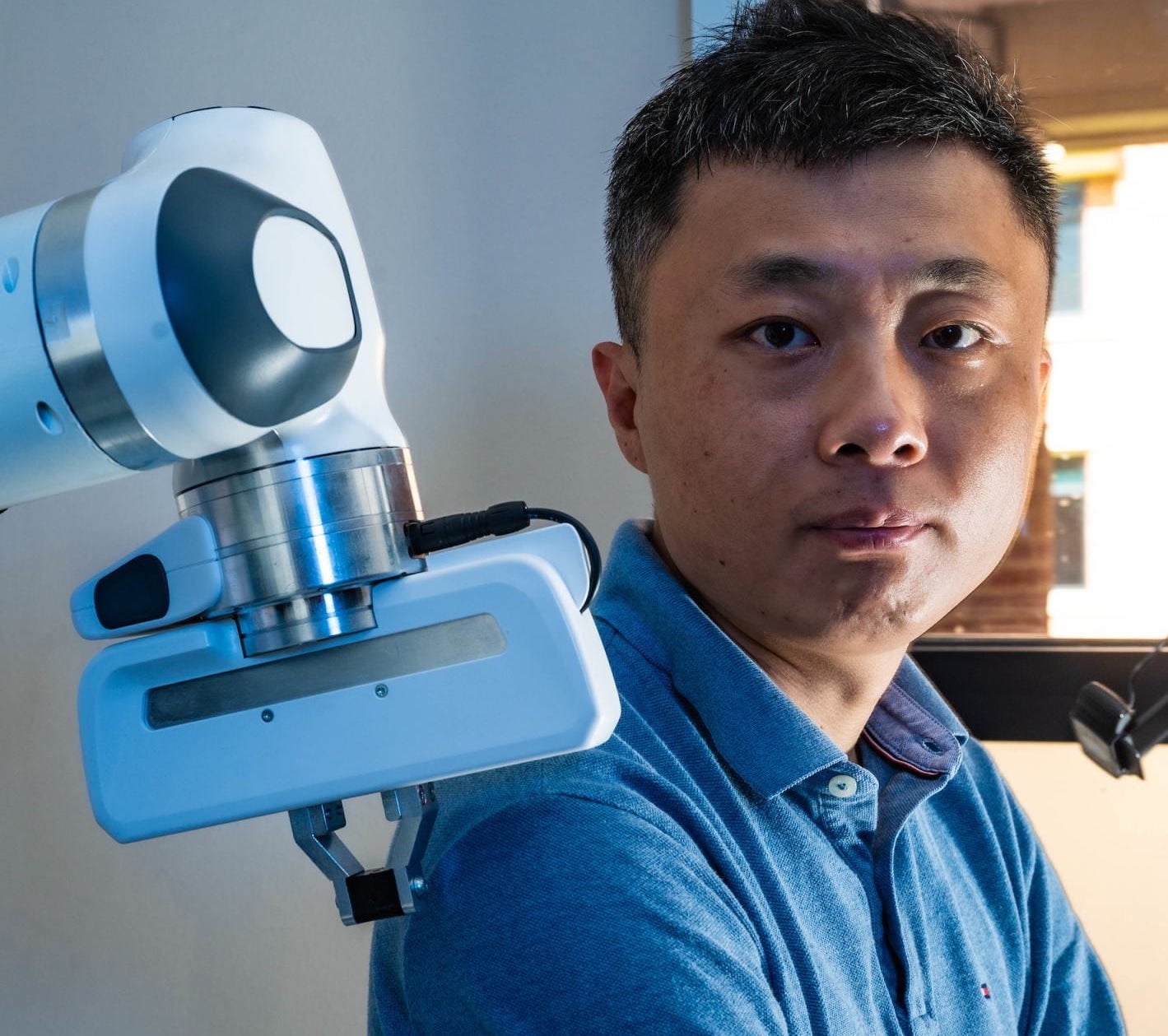The Ken Kennedy Institute's December Member of the Month: Kaiyu Hang, Assistant Professor of Computer Science.
Before joining Rice, Hang finished his postdoc research at Yale University, received his Ph.D. and M.Sc. from KTH Royal Institute of Technology, and earned his B.Eng. from Xi’an Jiaotong University. Now, he is an assistant professor or computer science and directs the Robotics and Physical Interactions Lab (RobotΠ Lab) at Rice University. Hang's research interests are in robotic systems that can physically interact with other robots, people, and the world. His research has received widespread media coverage including MIT Technology Review, Science Robotics, National Public Radio (NPR), YAHOO! News, TechXplore, Smithsonian, Nanowerk, Yale SEAS News, and Nature Electronics. Hang also recently won an NSF Career Award for his work to develop general-purpose robots that can handle complex physical interactions in real-world settings without requiring perfect input from sensors or extensive instructions.
How would you explain your research in 1-2 sentences?
By developing algorithms in optimization, planning, learning, estimation, and control, my research is focused on efficient, robust, and generalizable manipulation systems — addressing problems that range from small scale grasping and in-hand manipulation, to large scale dual-arm manipulation, mobile manipulation, and multi-robot manipulation.
How does your work impact the community at large?
While we don’t develop robots that can be directly deployed in real-world applications, we aim to investigate fundamental problems and provide solutions to robots that will be helpful in both the near and long future. Our goal is that our fundamental research will expand the boundaries, step by step, of our knowledge in robotics, which can be leveraged to eventually enable exciting applications to benefit everyone.
What kind of collaborations are you looking for at Rice and within the community?
Robot manipulation is relevant to many research fields. We are very interested in exploring collaboration opportunities with groups that can enable our robots to be computationally more intelligent (CS and ECE), mechanically more optimized (MechE), and socially more engaged (Social Science). We are also actively engaged and looking for more collaborations with the local communities in terms of medical robots (TMC) and energy robotics.
How do you see computation and data advancing in the future?
I believe computational power will keep increasing for a long time as more technological problems are being solved. Data, on the other hand, is not going to stay as a huge storage of random internet flows. At some point, if we have a much better understanding of what is knowledge (I don’t believe we know it yet) and how to represent it, data will become a key enabler for a profound revolution of computational intelligence.
How do you see the Ken Kennedy Institute supporting you and/or your research?
K2I has helped me and my research in many ways, such as establishing connections with relevant research groups, providing a platform to engage with the Rice community, as well as facilitating the initiation of interdisciplinary external collaborations with the support of seed funding.
What is your favorite book or movie?
It’s hard to pick just one but for now I would like to say “Wall-E”. It’s such an inspiring movie not only because there are awesome robots, but also, more importantly, it envisions a wide spectrum of opportunities and issues of robotics that we have to keep in mind.
Do you have any words of inspiration you would like to share?
I really like a quote by Einstein: “The difference between stupidity and genius is that genius has its limits”. While people can interpret it in many ways, I am always reminded by this quote that our research and knowledge is really, really, limited so let us work on it and do not overclaim.
_
See Hang's Rice Profile here.

